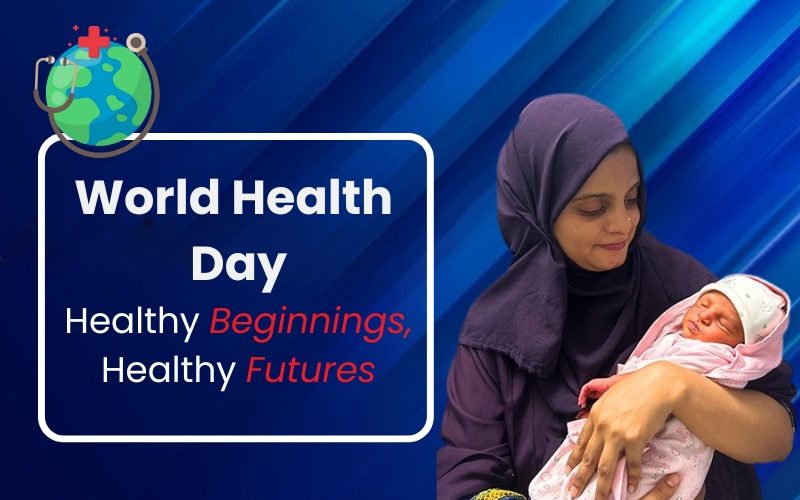World Health Day and Its Significance
Every year on April 7th, the World Health Organisation (WHO) celebrates World Health Day, a global initiative to raise awareness about pressing health issues and advocate for universal healthcare access. This day serves as a reminder that health is a fundamental human right, and equitable medical care should be available to everyone, regardless of socioeconomic status.
In 2025, the theme for World Health Day is “Healthy Beginnings, Healthy Futures,” focusing on the critical importance of maternal and neonatal healthcare. Healthy pregnancies and safe deliveries are the foundation of thriving communities, yet millions of women and newborns worldwide still lack access to essential medical services.
Why Maternal Healthcare Matters
Maternal health is not just about childbirth—it is about ensuring that every mother and baby has the chance to survive and thrive. According to WHO:
– Over 800 women die daily from preventable pregnancy-related complications.
– 2.4 million newborns die each year, mostly from treatable conditions.
– 94% of maternal deaths occur in low and middle-income countries, where healthcare access is limited.
These statistics highlight a global healthcare crisis, but they also present an opportunity for change. Proper maternal care includes:
✔ Prenatal check-ups to monitor maternal and fetal health
✔ Skilled birth attendants to prevent complications during delivery
✔ Postnatal care to ensure mothers and newborns recover safely
✔ Nutritional support for healthy development
When mothers receive proper care, societies flourish—children grow up healthier, families stay stronger, and economies benefit from a productive workforce.
Indus Hospital & Health Network’s Maternal Care Programme
Indus Hospital & Health Network (IHHN) believes that no mother should die giving life. That’s why it’s maternal and neonatal healthcare programmes provide free, high-quality care to women and babies who would otherwise be denied medical attention due to financial barriers.
- Safe Birth Initiative
IHHN ensures that expectant mothers receive:
– Free prenatal consultations with qualified doctors
– Emergency obstetric care for high-risk pregnancies
– Postnatal support, including vaccinations and nutritional guidance
- Neonatal Intensive Care Units (NICUs)
For premature and critically ill newborns, IHHN’s NICUs provide:
– Life-saving incubators and respiratory support
– 24/7 neonatal specialist care
– Maternal education on newborn health
- Community Outreach & Education
Many maternal deaths occur due to lack of awareness. IHHN’s outreach programmes:
– Educate women in rural areas on pregnancy warning signs
– Train local midwives in safe delivery practices
– Provide mobile health clinics for remote communities
Universal Maternal Healthcare for All
While progress has been made, millions of women still lack access to basic maternal care. We must:
✅ Advocate for policies that prioritise maternal health funding
✅ Support organisations like IHHN that provide free care
✅ Educate communities on the importance of prenatal and postnatal visits
✅ Donate and volunteer to expand healthcare access
The theme “Healthy Beginnings, Healthy Futures” reminds us that a healthy start in life is the cornerstone of a prosperous society. By investing in maternal healthcare, we don’t just save lives—we build stronger futures for generations to come. This World Health Day, let’s commit to ensuring that every mother, everywhere, has access to safe, dignified healthcare.



